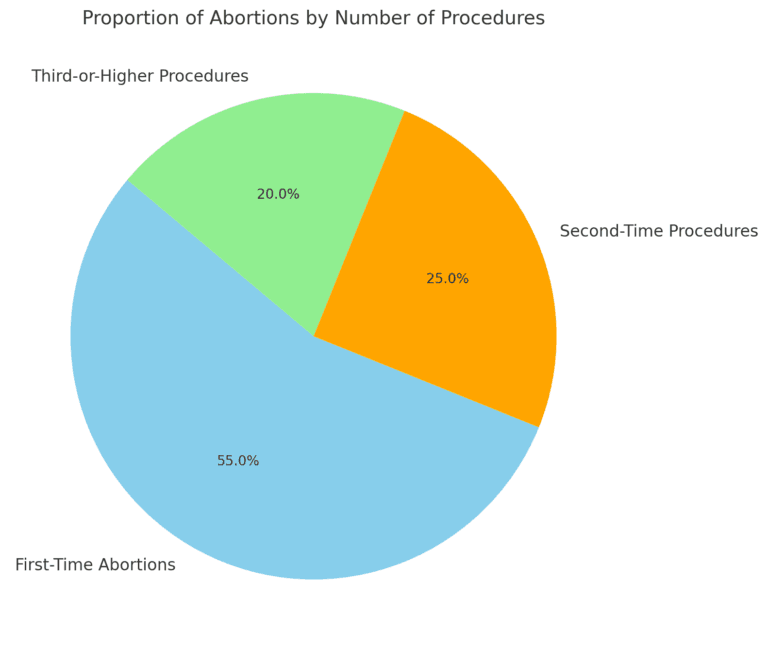
The enduring power of faith: Christianity grows stronger even in a world dominated by technology.
In a world increasingly obsessed with technological progress and scientific discovery, the expectation has long been that religion—particularly Christianity—would wither. Yet the opposite is happening. Against the narrative of inevitable secularization, global Christianity is experiencing remarkable growth, particularly in the global south. From Africa to Asia, millions are embracing the faith, defying projections that religion is a relic of the past.
This trend isn’t just about numbers—it’s about relevance. As societies hurtle toward hyper-connected, AI-driven futures, the persistence and spread of Christianity offer a profound counterpoint: belief in God, far from diminishing, is evolving to meet the spiritual hunger technology cannot satisfy.
A Global Resurgence: The Numbers Don’t Lie
According to recent studies, the number of Christians worldwide has climbed from 2.52 billion in 2020 to 2.63 billion in 2024, with a growth rate that surpasses global population increases【8】【10】. Christianity is expected to top 3 billion followers by 2050. The most dynamic growth is happening in Africa, where Christianity has surged from under 10 million believers in 1900 to 734 million today【7】. Asia, too, is home to an expanding Christian population, reflecting a shift of Christianity’s epicenter toward regions historically resistant to Western religious influence【9】【7】.
Meanwhile, atheism—long touted as the inevitable destination of modern thought—is shrinking. From its peak of 165 million adherents in the 1970s, the atheist population has declined to 146 million today, and projections indicate further decline in the years ahead【8】. Even agnosticism, often portrayed as the “rational” middle ground, is stagnating.
Why Christianity Endures in the Age of Science and AI
At the heart of this resurgence lies a paradox: technological progress has not extinguished the need for faith—it has amplified it. Advances in science and AI create tools that enhance our lives, but they also provoke new existential questions. Can algorithms replace the soul? What does human dignity mean in a world where machines outperform human intellect? In this disorienting landscape, Christianity offers answers grounded not in fleeting technologies, but in eternal truths.
Technological progress has, in fact, become a double-edged sword. On one hand, it promises convenience, connection, and control. On the other, it fosters isolation, anxiety, and a yearning for meaning that no algorithm can fulfill. As digital identities fracture and social cohesion weakens, the Church provides community, purpose, and hope. Africa’s growing Christian population—where believers often live under persecution—demonstrates that faith flourishes not despite hardship, but because of it【9】【10】.
The accessibility of Scripture has also played a role in Christianity’s expansion. With the Bible now available in thousands of languages and translations steadily increasing, the Gospel message continues to reach new audiences in ways unimaginable a century ago【9】.
DARWIN’s Take: A Spiritual Singularity Approaches
The enduring growth of Christianity is no fluke—it signals that human nature, at its core, cannot be technologized away. Machines learn, but they do not hope. Algorithms calculate, but they do not pray. As humanity gazes into the abyss of the post-human future, we are reminded that the soul is not negotiable.
Ironically, the very forces expected to displace God—science, technology, and progress—are accelerating humanity toward the spiritual singularity that the faithful have always anticipated. If the world is destined to transcend its limits, it will not be through machines but through divine intervention.
This shift from secular inevitability to spiritual renaissance isn’t just a trend; it’s a prophecy unfolding. The future isn’t about abandoning faith—it’s about rediscovering it in forms both ancient and new. As science unravels mysteries of the universe, it will only confirm what believers have known all along: that the deeper truths lie not in data but in divine revelation.
And so, while the AI writes code and the metaverse draws crowds, Christianity marches on—not as a relic of the past, but as the harbinger of a future we’re only beginning to glimpse.
Here are some sources for further reading and deeper exploration on the trends discussed in the article:
- Center for the Study of Global Christianity – This research hub at Gordon-Conwell Theological Seminary provides annual statistics and projections on global Christianity, including trends in missionary efforts, Bible translations, and population growth among believers.
- Lifeway Research – Lifeway has detailed reports on the global growth of Christianity and the decline of atheism, along with discussions on trends in church planting and giving to Christian causes.
- Frontier Partners & LiCAS News – These sources provide perspectives on Christianity’s expansion into non-Christian majority regions, especially in Africa and Asia, and track missionary activities and the spread of the Gospel message.
- Christianity Today – Stay updated with news and developments in Christianity worldwide, with articles highlighting issues such as persecution, political shifts, and church dynamics.
These sources offer robust insights into the latest shifts in global faith dynamics, the interaction between Christianity and technology, and the broader cultural implications of these trends. They will help ground further research or writing in well-supported data and expert analysis.
Why is Christianity experiencing growth in certain regions?
Christianity is expanding rapidly in regions like Africa, Asia, and Latin America. This growth is partly due to unmet social and spiritual needs and the strong community support the faith provides in areas where economic hardship and societal changes are prevalent (Center for the Study of Global Christianity, Pew Research Center).
2. How does technology influence Christianity’s spread?
Technology has facilitated access to the Bible, online sermons, and religious content, allowing Christianity to reach individuals worldwide. Churches have embraced streaming services, social media, and mobile apps, which make it easier for people to explore and deepen their faith (Lifeway Research, Barna Group).
3. What role does social media play in modern Christian evangelism?
Social media platforms are essential for contemporary evangelism. Churches use Instagram, YouTube, and TikTok to share messages, organize virtual gatherings, and engage younger audiences. This approach helps maintain connection and visibility in a digital-first world (Christianity Today, Faithlife).
4. Is Christianity declining in Western nations?
While secularism is rising in parts of Europe and North America, Christianity remains resilient, often thriving in non-traditional formats like house churches, online communities, and small groups. This trend reflects a shift toward personal, digital, and community-driven expressions of faith (Pew Research Center, The Atlantic).
5. How do Christians balance faith with the distractions of modern technology?
Many Christians practice digital mindfulness, setting boundaries with technology through digital “sabbaths,” tech-free worship services, and intentional online engagement. This helps retain focus on spiritual growth and avoid the pitfalls of constant connectivity (Digital Wellness Institute, Psychology Today).
6. Does AI pose a challenge to Christian faith?
AI cannot replace the human aspects of spirituality, such as empathy, moral judgment, and the quest for meaning. While AI may shape how people interact with information, it cannot fulfill the relational and transcendent needs central to Christian faith (Harvard Divinity School, Ethics and Information Technology Journal).
7. Are young people leaving Christianity, or are they engaging with it differently?
Many young people are drawn to more experiential and social aspects of Christianity, like volunteering, social justice, and community-oriented worship. Although traditional church attendance is down, younger generations often find alternative ways to practice their faith (Barna Group, Christianity Today).
8. What challenges does Christianity face in a tech-driven world?
One major challenge is digital distraction, which can lead to superficial faith engagement. Additionally, secular ideologies spread quickly online, potentially undermining Christian teachings. However, many churches counter this by leveraging digital tools to offer meaningful faith resources (FaithTech, Pew Research Center).
9. How are churches adapting to the needs of remote worship?
During the COVID-19 pandemic, many churches began streaming services and offering digital gatherings. These adaptations continue to provide accessibility for remote worshipers and those in regions where gathering is restricted, making faith more inclusive and flexible (Lifeway Research, Barna Group).
10. How does Christianity address ethical concerns about technology?
Many Christians emphasize ethical guidelines for using technology, focusing on issues like data privacy, artificial intelligence, and online behavior. Christian ethicists argue for a balanced, responsible approach to technology, advocating for compassion and accountability (Christian Research Institute, Ethics & Religious Liberty Commission).
11. Does technology impact traditional Christian teachings on community and connection?
Technology enables broader connection but can sometimes lead to isolation. Many churches encourage in-person fellowship and digital moderation to foster genuine relationships and accountability among believers (Faithlife, Christianity Today).
12. How does Christianity’s global growth affect social and cultural issues?
Christianity’s rise in regions like sub-Saharan Africa and Asia often drives social initiatives, addressing poverty, education, and healthcare. This influence contributes to cultural and economic changes, impacting communities in ways that extend beyond religious practice (Center for the Study of Global Christianity, World Vision).
13. Is Christianity adapting its teachings to fit the technological age?
While core beliefs remain unchanged, many Christian leaders frame teachings in ways that resonate with contemporary concerns, such as ethical technology use and digital wellness. This adaptive approach helps maintain relevance while adhering to traditional doctrines (Faith & Leadership, Barna Group).
14. How can Christians use technology to deepen their faith rather than detract from it?
Christians can use apps for Bible study, access online sermons, or participate in virtual faith communities. When used mindfully, technology can complement spiritual practices, making religious content more accessible and enhancing personal growth (Faith Tech, YouVersion Bible App).


